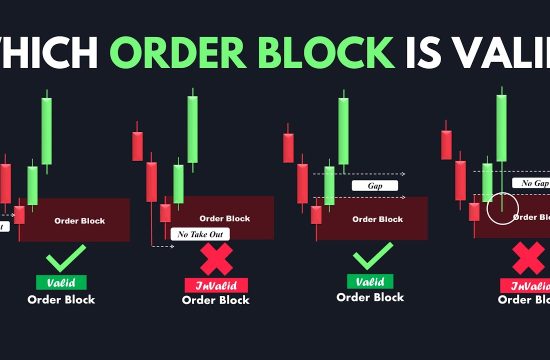Understanding Bitcoin Market Dynamics
The Basics of Bitcoin Trading
When I first started trading Bitcoin, I felt like I had entered a maze without a map. Trading Bitcoin isn’t just about buying low and selling high; it’s a fine dance with market dynamics. Understanding market forces—supply and demand, market sentiment, and the various participants—can make all the difference.
One of the first things I learned was to pay attention to current events. News related to Bitcoin, regulatory updates, and technological advancements can swing market prices dramatically. Staying informed helps you anticipate market movements, and that level of awareness is crucial.
Another piece of the puzzle is grasping volatility. Bitcoin is notorious for its price swings—one minute you’re celebrating gains, and the next you’re staring down losses. Recognizing that volatility means preparing emotionally and strategically; it’s all about having the right mindset when trading.
Reading Charts and Analysis
Chart reading was an eye-opener for me. When I initially dived into Bitcoin trading, I underestimated the power of technical analysis. Candlestick charts became my best friend. They show you the price movement over time and can signal potential reversals or continuations of trends.
Learning about resistance and support levels was another game-changer. These levels indicate where price tends to reverse, so knowing where they sit can help you identify entry and exit points. I often found myself drawing lines on a chart, feeling like a stock market Picasso!
Lastly, I encourage everyone to explore indicators like the Relative Strength Index (RSI) or Moving Averages. They provide insight into market momentum and can inform your trades. This analytical approach not only improves my trading skills but also gave me that extra layer of confidence in my strategies.
Developing Your Trading Strategy
Setting Clear Goals
Goal setting in trading is like having a destination when driving. Without it, you might find yourself lost. Early on, I learned the importance of defining what I wanted to achieve with my Bitcoin trades. Was it short-term gains? Long-term investments? Setting these intentions gives your trading activities purpose.
Your goals should be SMART: Specific, Measurable, Achievable, Relevant, and Time-bound. For instance, instead of stating, “I want to make money,” I decided on something like, “I aim to increase my portfolio by 15% in the next three months.” This specificity transformed my approach and held me accountable.
In addition, revisiting your goals regularly is key. No path is perfect, and your initial goals might need tweaking based on how markets behave or your current life situation. Be adaptable while keeping your eyes on the prize.
Risk Management Techniques
Ah, risk management. This is where I had to get real with myself. It wasn’t enough to just chase profits; I had to figure out how to protect my capital. The first rule I embraced was only risking a small portion of my trading account on any single trade. This way, I wouldn’t get wiped out by a bad decision.
I started using stop-loss orders to limit my losses automatically. Setting a predefined point at which I’d exit a trade helped me avoid that emotional decision-making that often leads to losses. It’s like setting boundaries in a relationship; it saved me from unhealthy trades.
Finally, I adopted a trading journal. Just like keeping a diary, I noted my trades, emotions, and outcomes. Reviewing this helped me identify patterns in my behavior—both good and bad. Over time, this self-reflection sharpened my skills significantly.
Continuous Learning and Adaptation
Staying Informed About the Market
The crypto world evolves at lightning speed, and so should your knowledge. I’ve found that following trusted news sources, joining webinars, or actively participating in forums keeps me in the loop. These interactions often provide new insights or trends that I might not catch on my own.
Podcasts and YouTube channels dedicated to cryptocurrency are also great resources. Sometimes, listening to seasoned traders discuss their thoughts can be enlightening. Their experiences add a layer of wisdom that you just can’t get from textbooks.
Moreover, consider subscribing to research reports from established companies in the crypto space. They often analyze market trends and give forecasts, which can be invaluable for shaping your trading strategy.
Embracing the Community
The crypto community is vibrant and supportive. Early on, I hesitated to engage, thinking I might look foolish asking questions, but once I did, it opened up new horizons. I’ve found that discussing strategies and experiences with fellow traders not only helps you learn but also offers different perspectives.
Social media groups on platforms like Twitter or Reddit can also be gold mines for information. Just be cautious and ensure you verify the credibility of the sources before taking someone’s word as gospel.
Lastly, sharing your own experiences, whether good or bad, can help others. It’s a way of giving back and contributes to the overall knowledge pool. I’ve seen how collective wisdom can enhance everyone’s trading journey.
Utilizing the Right Tools
Choosing Trading Platforms Wisely
For me, selecting the right trading platform was one of the most crucial decisions. There are tons of platforms available, but not all cater to your style. I looked for user-friendly interfaces and low fees, as every little bit counts when trading Bitcoin!
Security is paramount, too. I’ve heard enough horror stories of exchanges getting hacked to know better. I made a point of researching platforms’ security features, and I even opted for exchanges that offered two-factor authentication. Your funds should feel safe, right?
Lastly, I made sure the platform I chose had good customer support. During those moments when something doesn’t go as planned, having quick access to help can alleviate a mountain of stress.
Leveraging Technology for Analysis
Technology has changed the game, and I didn’t want to miss out. I started exploring trading bots and automated tools that help with executing trades based on predefined criteria. It was like having my personal assistant managing parts of my trading, allowing me to focus on strategy instead of being glued to the screen all day.
Algorithms can analyze data much quicker than I can, and they often catch opportunities that I might overlook. While I still believe in the importance of personal judgment, incorporating tools definitely enhanced my approach.
Nonetheless, I always keep an eye on my trades, even when using automated tools. It’s still essential to stay engaged and make conscious decisions rather than just relying on software to do the heavy lifting.
Frequently Asked Questions
1. What is the most important factor in Bitcoin trading?
The most important factor is to understand market dynamics. Staying informed about Bitcoin’s volatility, trends, and market sentiments can greatly enhance your trading success.
2. How can I minimize risks while trading?
Minimizing risks is all about proper risk management—using stop-loss orders, only risking a small portion of your trading account on any trade, and maintaining a trading journal to reflect on your decisions and outcomes.
3. Why is continuous learning necessary in Bitcoin trading?
The crypto market evolves rapidly. Continuous learning helps you stay informed about new trends and market influences, allowing you to adapt your strategies effectively.
4. How can I choose the right trading platform?
Look for platforms that are user-friendly, secure, and offer competitive fees. Ensure they have strong security measures, like two-factor authentication, and reliable customer support.
5. What tools can enhance my Bitcoin trading?
Leveraging technology, such as trading bots and automated tools, can help analyze data and execute trades based on predefined criteria. They can provide you with an edge over your competition.
Related Content
- Phemex Leverage Trading Tutorial (Phemex Contract Trading)
- Bybit Card 2025 Full Review & Tutorial
- Cardano ADA: They JUST Did It!!!!
- Bitcoin, Ethereum Technical Analysis: BTC, ETH Extend Declines on Saturday, as Markets React to Latest NFP Report
- The Bitcoin Conference 2022 Pitch Day Showcases The Next Generation Of Bitcoin Startups









